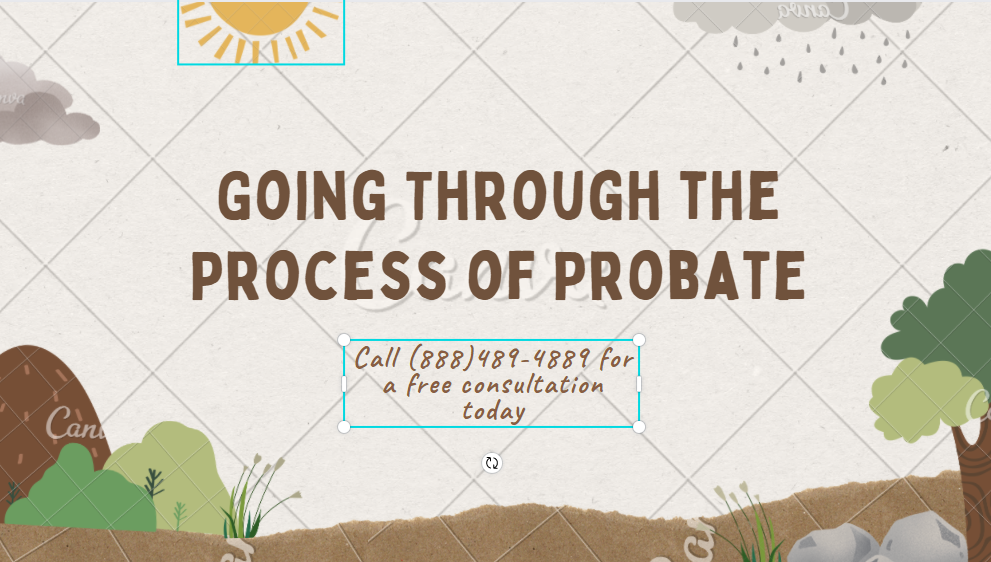
We recently had the opportunity to see a client who was being forced to go through the process of probate after her mother died. When the will was probated, everything went smoothly. Her siblings received most of their inheritance while her mom’s children had to wait until after a court hearing before their inheritance would be determined.
She was angry with the court and her siblings for keeping her and her siblings in the dark.
This was my first experience as a probate attorney, and this case was so frustrating because it was a matter of timing. It’s tough to argue that the court should allow a party to wait for her own mother to die while she was not even notified when her mother died. The case was finally settled when her mother did die, but it was a difficult time.
Most families have a lot to say about their experience with probate, and most of it is negative. But probate is a part of life, and probate and probate litigation are often a result of family problems.
Here are some common concerns and ways to handle them.
- I need to get access to the deceased’s assets. What are my rights?
There are lots of different ways to gain access to assets, and in most cases, you don’t need a court order to get access to an estate. In some states, an inheritance can be distributed without going through probate. But if you are asking the court for specific kinds of property or assets, it is usually a good idea to get a court order. The court can give you more rights to the deceased’s property, and it may have an easier time getting its orders upheld.
- Can I get half of the deceased’s estate, or is it all or nothing?
When a person dies without leaving a will, the court will allocate the estate among all the beneficiaries based on what the person’s heirs or beneficiaries would have received if the person had left a will. If you are not entitled to any of the deceased’s property, you may be able to force the deceased’s heirs or beneficiaries to divide the estate in a way that gives you more of it. In addition, if the estate is large, the court may order that you have a certain percentage of the property or that all the heirs get to keep half the property.
- Is there a probate fee?
If you are contesting probate of a will, you are required to pay a fee that may be less than $5,000. It will not be assessed to you if you are contesting the will based on fraud. It may be assessed to you if you are contesting the will because of fraud in the drafting of the will.
- How long will it take to complete the probate?
Probate will take time to complete, but that does not necessarily mean it will take a long time. The average time from application for probate to settlement is four to six months.
- My brother will not give me a penny of the deceased’s property.
It is often the case that in a will, the deceased’s relatives (such as siblings or other children) will receive more property than they would have without a will. When a person dies without leaving a will, the estate will be distributed according to the intestate law in effect at the time the person dies. In the case of intestacy, some states give a lot of power to the surviving spouse, so it may be beneficial to get married if you are being challenged for receiving any property. In many cases, the court will order the other party to give up their right to inherit or share in the deceased’s property. The other party may be required to assign an amount of property to the deceased’s heirs if the deceased did not have children, or may be required to give the deceased’s heirs part of the deceased’s property in order to ensure that the spouse inherits.
- My family and I disagree about what to do with the deceased’s property.
Many families split up after a death, and that can often create disputes over property. It may be possible to negotiate with your family about what to do with the deceased’s property, or you may need to go to court to make sure that your family is properly dealing with the property. It is often the case that the deceased’s children will keep the deceased’s house, and the grandchildren will keep the property the deceased had accumulated. You may be able to seek an equal division of the property that was inherited from your parents, or you may be able to get part of the deceased’s property based on how much the deceased gave you or your siblings as part of the deceased’s estate. If you are arguing that the deceased’s family is not taking enough of the deceased’s property for themselves, you will need to prove that you are the deceased’s heir (or at least that you inherited your share of the deceased’s property through your parents) and that you did not fraudulently inherit the deceased’s property.
- I think I was the deceased’s only child.
Sometimes the deceased did not leave a will because they expected their children to inherit their property. If you think that you are the only child, you will be able to inherit more of the deceased’s property, and you may be able to get more of the property that was inherited from the deceased’s parents.
For more details about tax and process of probate, call (888)489-4889 for a free consultation.
